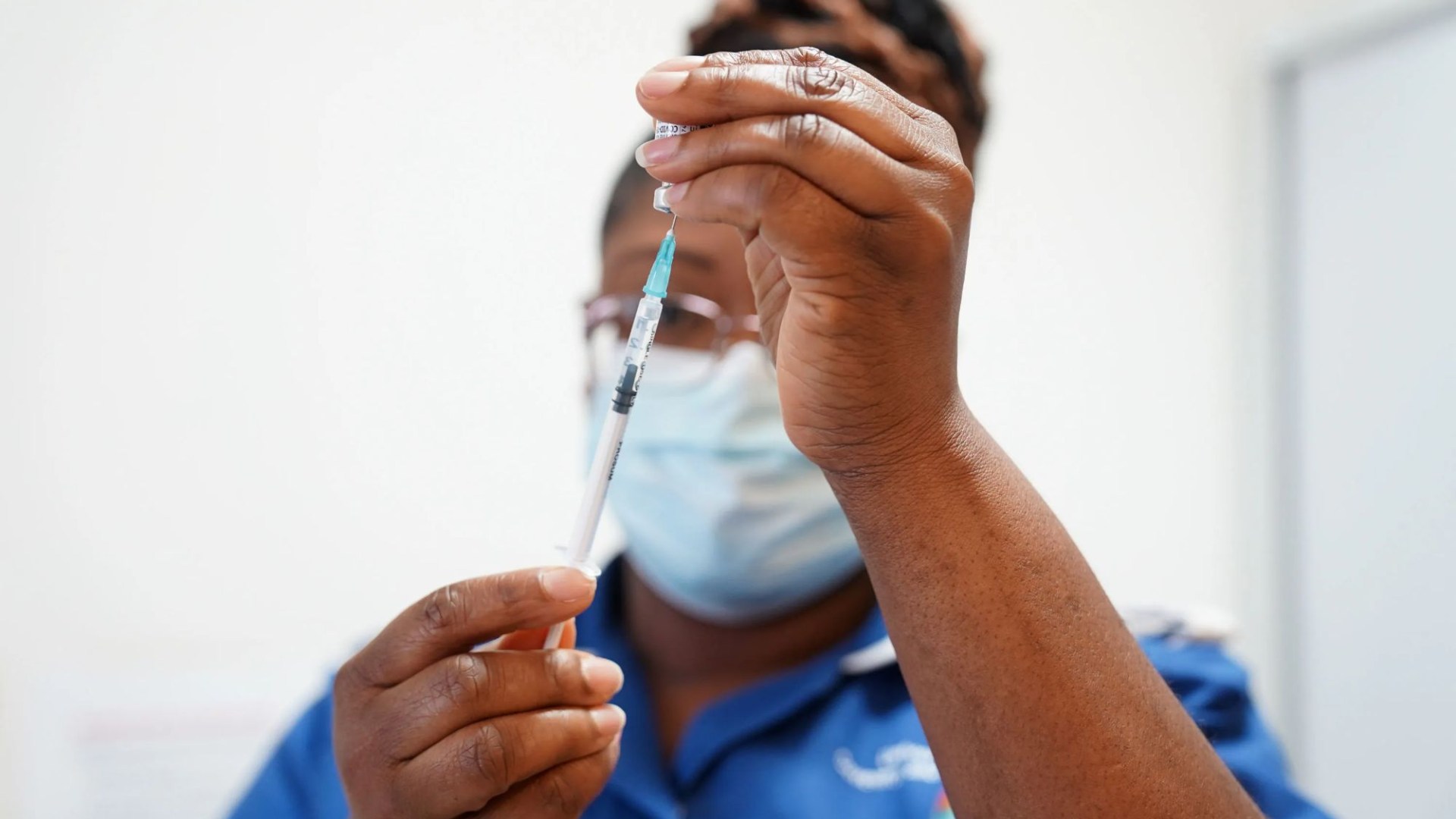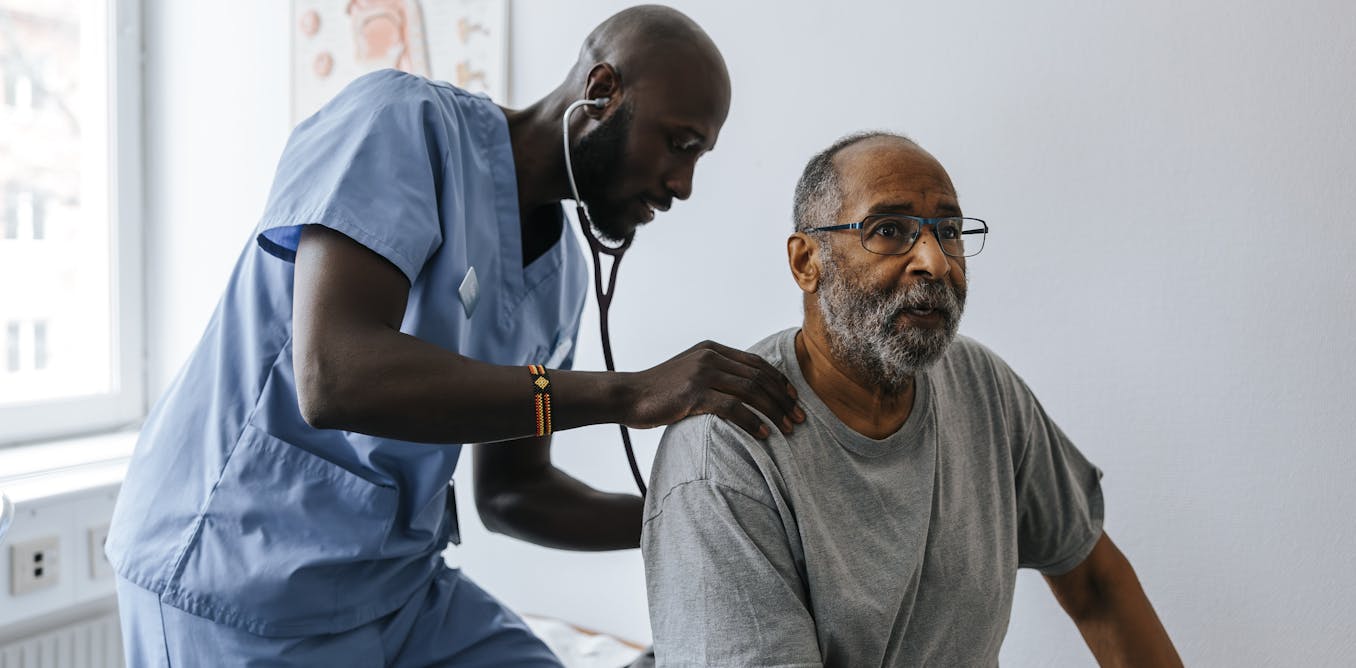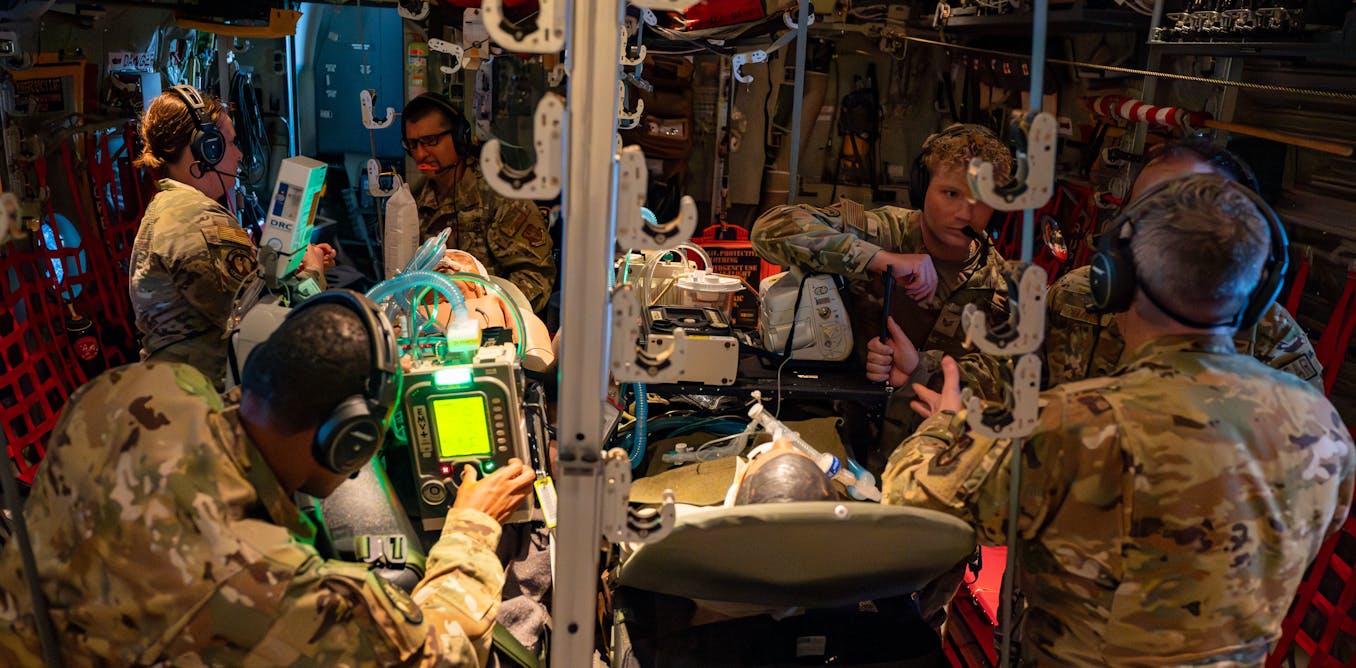VACCINATE now to avoid a ‘tripledemic’ of viruses, NHS chiefs have warned – as millions are offered a new jab.
Brits are being urged to book their winter vaccinations for flu, covid-19 and respiratory syncytial virus (RSV) on Monday.
1
Public health bosses said the three viruses could combine in a “tripledemic”.
NHS vaccine chief Michelle Kane said: “Vaccination is a vital part of our preparations for what’s expected to be another challenging winter.
“There are concerns about a potential ‘tripledemic’ of RSV, Covid-19 and flu during an already busy period.
“Vaccines help protect people — and those around them — so I would urge everyone eligible to get their flu, Covid-19 and RSV jabs booked.”
She added: “Booking is simple either online, via the NHS App or by calling 119.”
NHS England’s Prof Julian Redhead said: “Staff in urgent and emergency care have worked incredibly hard over the last year.
“Patient safety is our number priority and will be the focus for providers this winter.
“Vaccines are a crucial way of protecting people against the spread of viruses and reducing strain on the NHS.
“So I would urge everyone eligible to get their flu, Covid-19 and RSV jabs booked.”
He added: “As ever people should come forward for care in the usual way.”
Millions of people will get winter jabs for RSV – a virus which causes many coughs and colds.
RSV can be dangerous for young children and elderly people, experts said.
The jab is available to people aged between 75 and 79 as well as pregnant women past the 28-week mark.
People over 65, care home residents and people with health problems can also book flu and covid-19 jabs from Monday.
Covid and flu vaccines are also being offered to frontline health and social care workers.
If you’re eligible, you can get jabs at your local pharmacy or GP practice from October 3.
The UK Health Security Agency’s Dr Mary Ramsay said: “Our ongoing surveillance shows that Covid-19 continues to cause severe illness.
“It is putting many in hospital, particularly older people and those with underlying medical conditions.
“But it also shows that the autumn vaccines are effective in helping to give added protection to those most at risk.
“Vaccines almost halve the likelihood of hospitalisation from the virus for a few months following vaccination and over the winter period.
“I urge everyone who is eligible to take up the offer of a vaccine as soon as possible once invited.
“It will help improve your immunity to Covid-19, which does wane over time.”
Health minister Karin Smyth said: “Services have been failed for too long and change cannot happen overnight.
“But we are working closely with trusts and local authorities across the country to start our preparations for the colder months.”
Smyth added: “We continue our plans to build an NHS that is fit for the future.
“But this government has been clear that we cannot continue to fix the annual winter crisis with sticking plasters.
“That’s why we are working to radically reform the NHS through the 10-year plan and build a health service that is fit for the future all year round.”
Symptoms of RSV
PEOPLE commonly show symptoms of the virus four to six days after being infected.
Signs include:
- Runny nose
- Decrease in appetite
- Coughing
- Sneezing
- Fever
- Wheezing
But symptoms can be much more subtle in very young babies, including irritability, decreased activity and breathing difficulties.
Most children will have had an RSV infection by their second birthday.
It can cause a condition called bronchiolitis in babies and young children.
Symptoms of bronchiolitis in very young infants include:
- Refusal to breastfeed or bottle-feed
- Breathing more quickly and noisily (wheezing)
- Seeming very tired, upset or inactive
- Signs of dehydration – lack of tears when crying, little or no urine in their nappy for six hours, and cool, dry skin
Source: CDC, Asthma + Lung UK




